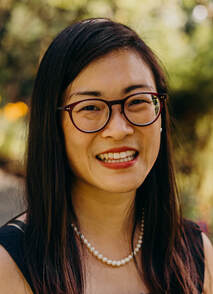Dear Body—
I was afraid of saying no. I went in uninformed and inclined to please. I never stopped to ask if there
was another way.
I was concerned with doing birth correctly, whatever that meant.
Push! push! push! The nurses’ loud shouts, the force of their insistence, though birth was a faraway
country, and I remained stranded from its shore. Mostly I remember the glare of overhead lights.
The room flooded with strangers, a rush of surgical masks and gloves and then, somehow, the baby.
I heard a faint cry, like the high, fluted voice of a bird. Two notes, one slightly higher than the first—
thin pitches rising then falling.
They placed her on my chest, and as I held her in my arms, pink and unblinking, I looked down and
thought, what now?
They took her away, and suddenly the room was very quiet. I lay in the dark thinking, I want to go
home.
I wanted to be held, but there was no one. Nurses moved briskly around the room. There was the
distant sound of beeping monitors, footsteps on linoleum.
For days, I was afraid to leave the hospital. I had fallen so far out of my own life, there appeared no way
home.
Each time she woke, fitful and whimpering, I was gripped by a new feeling of loss.
On the morning of the third day, I sat in a vinyl chair, washed in midwinter light. Tentatively I
touched her tiny, cuffed hands. She opened her eyes and yawned and I took my first, quavery steps
into motherhood.
We begin, and then we begin again.
was another way.
I was concerned with doing birth correctly, whatever that meant.
Push! push! push! The nurses’ loud shouts, the force of their insistence, though birth was a faraway
country, and I remained stranded from its shore. Mostly I remember the glare of overhead lights.
The room flooded with strangers, a rush of surgical masks and gloves and then, somehow, the baby.
I heard a faint cry, like the high, fluted voice of a bird. Two notes, one slightly higher than the first—
thin pitches rising then falling.
They placed her on my chest, and as I held her in my arms, pink and unblinking, I looked down and
thought, what now?
They took her away, and suddenly the room was very quiet. I lay in the dark thinking, I want to go
home.
I wanted to be held, but there was no one. Nurses moved briskly around the room. There was the
distant sound of beeping monitors, footsteps on linoleum.
For days, I was afraid to leave the hospital. I had fallen so far out of my own life, there appeared no way
home.
Each time she woke, fitful and whimpering, I was gripped by a new feeling of loss.
On the morning of the third day, I sat in a vinyl chair, washed in midwinter light. Tentatively I
touched her tiny, cuffed hands. She opened her eyes and yawned and I took my first, quavery steps
into motherhood.
We begin, and then we begin again.
Mia Ayumi Malhotra is the author of Notes from the Birth Year, winner of the Bateau Press BOOM Chapbook Contest, and Isako Isako, a California Book Award finalist and winner of the Alice James Award, the Nautilus Gold Award, a National Indie Excellence Award, and a Maine Literary Award. Her poems have been recognized internationally with the Hawker Prize for Southeast Asian Poetry and the Singapore Poetry Prize, and her work has appeared in numerous journals and anthologies, including The Yale Review, Indiana Review, and The World I Leave You: Asian American Poets on Faith and Spirit. A Kundiman Fellow and founding editor of Lantern Review, Mia teaches and lives in the San Francisco Bay Area.
Art: Yuno Shiota,『無題』 Mudai Untitled 286 cm × 205 cm, acrylic and oil pastel on paper, 5.14.2020
Powered by Women

